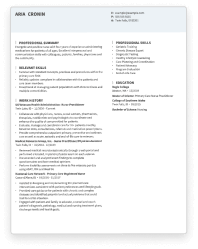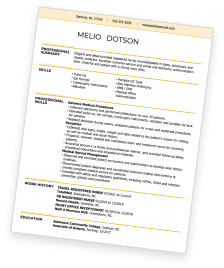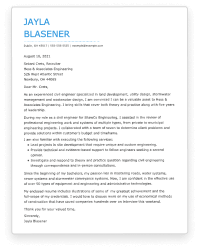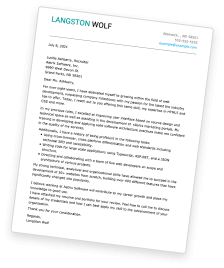Supply Chain Manager Resume: Overview
As a supply chain manager, you are pivotal in the seamless functioning of supply chains across various industries. You ensure that every link in the supply chain is efficient and effective, from procurement to distribution, all while minimizing costs and maximizing speed.
Your responsibilities often encompass the following areas:
- Manufacturing Companies
- Wholesale Distributors
- Retail Chains
- Transportation Providers
- Third-Party Logistics Firms
- E-commerce Platforms
Creating an outstanding resume is essential to landing your next role as a supply chain manager.
Our downloadable templates and expert examples are designed to help you showcase your best qualifications and experiences in this crucial field!
Supply Chain Manager Resume: Choose A Format
Writing a resume for a supply chain management position begins with selecting the right format.
Choosing a format that clearly showcases your qualifications in a compelling way is crucial to standing out among other job candidates.
There are three types of resume formats that supply chain managers can consider:
Chronological Resumes for Supply Chain Managers
The chronological resume format is the most popular and recommended for supply chain management roles, as it emphasizes the applicant’s relevant professional experience.
A supply chain manager would, for instance, list all their relevant experiences in the work history section, such as previous management roles, logistics coordination, or procurement positions.
Each work experience should include a detailed description of responsibilities and achievements, as well as the job title, name of the employer, location, and dates of employment.
Responsibilities and achievements should be listed in bullet points featuring strong action verbs and quantifiable metrics to stand out and provide unique context to their qualifications.
Chronological resumes are also highly compatible with applicant tracking systems (ATS), enhancing your resume’s visibility during the initial screening process.
Functional Resumes for Supply Chain Managers
Functional resumes focus on the skills of the applicant rather than their work history. This format is useful when a candidate might lack directly relevant experience for the position they are applying for.
For example, a recent graduate with a degree in supply chain management might opt for a functional resume to highlight the skills and knowledge acquired through education and internships, despite limited full-time professional experience.
While functional resumes may not be as compatible with applicant tracking systems (ATS) and may not engage employers as effectively as chronological resumes, they can be valuable for candidates transitioning into supply chain management from different fields or those with gaps in their professional history.
Combination Resumes for Supply Chain Managers
A combination resume is a hybrid between the chronological and functional formats. It gives equal weight to skills and experience, allowing candidates to showcase both effectively.
A supply chain manager might choose this format, especially if they want to highlight specific skills alongside their experiences, perhaps to address a career change or emphasize a particular expertise area.
Choosing a Format
Selecting the right resume format is an important step in the resume-writing process, and it’s vital to pick the best one for your needs.
While the chronological format is generally preferred, especially for those with a solid track record in supply chain management, it’s essential to assess your individual background and career objectives.
For those with less direct experience or those transitioning from another career, the combination or functional formats might be more suitable.
Consider all aspects of your professional background, including less directly related roles, to demonstrate transferable skills that are relevant to supply chain management, such as strategic planning, team leadership, or project management.
How To Write A Supply Chain Manager Resume
Once you choose a format for your supply chain manager resume, the next step is knowing how to write your resume effectively.
You need to include five key sections, with the option to add additional sections, to detail your professional background and skills comprehensively.
The five essential sections that outline a resume are:
- Contact Information
- Summary or Objective
- Work History
- Skills
- Education
Each section plays a critical role in showcasing your capabilities and positioning you for success in the field of supply chain management.
Contact Information
Your contact information should include your full name, phone number, professional email address, and location (city and state).
You may also consider including your LinkedIn profile or a link to an online portfolio or professional website, particularly if they demonstrate your expertise in supply chain management.
Ensure your contact information is prominently placed at the top of your resume and is easy to locate and read.
An example of how the contact information might appear on a supply chain manager’s resume:
John Doe
Atlanta, GA
john.doe@professionalemail.com
555-123-4567
LinkedIn Profile | Professional Website
Summary or Objective
Your resume should begin with a profile section under your contact information that introduces you to the reader. Here, you have two options: a resume summary or an objective.
Resume Summary: A resume summary provides a quick overview of your key skills and experiences, highlighting career achievements. This is best suited for professionals with significant experience in supply chain management.
A strong resume summary for a Supply Chain Manager might read:
“Strategic Supply Chain Manager with over 12 years of experience in overseeing operations and logistics. Specialized in reducing costs, optimizing and redesigning supply chain processes, and implementing innovative logistics solutions. Proven track record of leading supply chain transformations that significantly improve product availability and operational efficiency.”
Resume Objective: A resume objective focuses on your career goals and enthusiasm for the position, ideal for those new to the industry or changing careers.
An effective resume objective for a Supply Chain Manager could be:
“Detail-oriented and analytical professional transitioning from a career in financial analysis to supply chain management. Holds a Master’s degree in Supply Chain Management and has completed an internship with a leading logistics firm. Passionate about leveraging analytical skills to enhance supply chain efficiency and sustainability. Eager to apply strategic planning capabilities in a challenging new environment.”
Note: Whether you choose a summary or an objective, use this section to incorporate relevant keywords from the job description. This will not only help your resume pass through Applicant Tracking Systems (ATS) but also draw the attention of the hiring manager, increasing the likelihood that they will engage with the rest of your resume.
Work History
Creating a detailed and compelling “Work History” section in your supply chain manager resume is vital for demonstrating your relevant experience and achievements.
Most employers are looking for concrete evidence of your skills, and this section provides a snapshot of your professional successes.
Start with your most recent job and work backward, focusing on roles that closely align with the supply chain manager position you’re applying for.
This strategy helps you stand out by emphasizing responsibilities and accomplishments that highlight your qualifications for the job.
Use strong action verbs to convey growth through accomplishments and responsibility, and whenever possible, quantify your achievements with numbers or percentages.
Pro Tip: Metrics add credibility to your claims and demonstrate the tangible impact you’ve had in your roles. This not only makes your resume more impactful but also underscores the unique value you bring to potential employers.
Here’s an example of what the work history section might look like for a Supply Chain Manager resume:
Senior Supply Chain Manager
ABC Manufacturing Inc., Metropolis, State
01/2016 – Present
- Led a supply chain optimization project that reduced logistics costs by 25% through strategic carrier partnerships and route optimization.
- Implemented a new ERP system that increased supply chain visibility and reduced order processing times by 30%.
- Managed a team of 20 logistics specialists and coordinated end-to-end supply chain activities for over $50M in products annually.
- Developed risk management protocols that minimized disruptions during supply shortages, maintaining a 99% on-time delivery rate.
- Collaborated with suppliers to improve sourcing strategies, resulting in a 20% increase in material quality and a 15% decrease in lead times.
Skills
In a dedicated skills section, list your most relevant hard and soft skills for the supply chain manager position on your resume.
Like your work history, focus on skills that are most relevant to the specific job in question and demonstrate a balance of technical and interpersonal abilities.
Consider any technical skills or management skills that best highlight your qualifications for supply chain management.
Some of the most sought-after hard skills and soft skills for supply chain managers include:
Top 5 Hard Skills for Supply Chain Manager Resumes
- Supply Chain Optimization: Expertise in streamlining operations to reduce costs, increase speed, and improve efficiency.
- Inventory Management: Proficient in managing inventory levels to balance demand with supply effectively and avoid overstocking or stockouts.
- Procurement and Sourcing: Skilled in negotiating with suppliers to obtain the best prices and terms and in developing reliable supply chains.
- Logistics Management: Ability to oversee transportation operations to ensure timely delivery and minimize transportation costs.
- Data Analysis and Forecasting: Competence in using data analytics tools to forecast demand and improve supply chain decisions.
Top 5 Soft Skills for Supply Chain Manager Resumes
- Leadership: Experienced in leading teams and managing projects to successful completion.
- Problem Solving: Exceptional ability to identify problems quickly and develop effective solutions.
- Adaptability: Skilled in adapting to new challenges and changes in the business environment.
- Communication: Strong ability to communicate effectively with all levels of an organization and with external partners.
- Strategic Thinking: Proficient in planning strategically to meet long-term business goals.
On a supply chain manager’s resume, the skills section may look like this:
Skills
- Logistics Management: Proficient in logistics software (e.g., SAP, Oracle)
- Inventory Management: Experienced in JIT and Kanban inventory systems
- Negotiation: Skilled in vendor negotiations and contract management
- Leadership & Teamwork: Strong leader and team player in collaborative settings
- Strategic Planning: Effective in strategic supply chain planning and implementation
Education
The education section of your supply chain manager resume will include your highest degree obtained, the name of the institution, and its location.
You may also choose to include your graduation date, relevant coursework, and any honors or certifications you obtained, if they are particularly relevant to the role you are applying for.
However, you have the option to include such information in separate sections if that serves your presentation better. Choose the format based on the job’s requirements and how you prefer to use space on your resume.
An education section on a supply chain manager’s resume may look like this:
Master of Engineering in Logistics and Supply Chain Management
Massachusetts Institute of Technology (MIT)
Cambridge, MA
Given the technical nature of supply chain management, highlighting relevant educational achievements is important.
Ensure that your qualifications meet any specific educational requirements mentioned in the job listing.
Additional Sections
You can include additional sections on your resume if they are relevant and do not clutter the document.
For a supply chain manager, these sections might include:
- Certifications: Such as Certified Supply Chain Professional (CSCP) or Certified in Production and Inventory Management (CPIM).
- Volunteer Experience: Especially if it involves logistics, organization, or leadership roles.
- Professional Associations: Membership in organizations like APICS or the Council of Supply Chain Management Professionals (CSCMP).
- Awards and Honors: Any recognitions related to your professional achievements in supply chain management.
- Relevant Hobbies: Hobbies that demonstrate skills applicable to supply chain management, like model building or competitive strategy games.
Separating these items into distinct sections can help these qualifications stand out more effectively.
Top 5 Certifications for Supply Chain Managers
Certifications are crucial for supply chain managers as they validate your skills and knowledge in the complex field of supply chain management.
These certifications can help you stand out in a competitive job market:
- Certified Supply Chain Professional (CSCP) from APICS: This certification provides you with the necessary skills to manage global supply chain activities effectively. It covers supply chain design, planning, execution, and improvement.
- Certified in Production and Inventory Management (CPIM): Also offered by APICS, this certification focuses on improving production and inventory efficiency. It is highly respected in the manufacturing and distribution sectors.
- Certified Logistics, Transportation and Distribution (CLTD): This certification, provided by APICS, validates your knowledge in the logistics, transportation, and distribution sectors. It is ideal for those managing these specific aspects of the supply chain.
- Six Sigma Certification: Six Sigma methodologies are highly relevant to supply chain management, focusing on reducing defects, streamlining processes, and improving quality. A Six Sigma Green Belt or Black Belt certification can be particularly advantageous.
- Supply Chain Management Professional (SCMP): This designation from the Supply Chain Management Association (SCMA) is recognized internationally and covers all aspects of supply chain management from procurement to technology integration.
These certifications demonstrate a serious commitment to maintaining the highest standards in supply chain management and can be pivotal in advancing your career.
8 Tips For Writing a Supply Chain Manager Resume
Tailor Your Resume: Customize your resume for each job application to align with the specific requirements of the company and the job description. Highlight experiences and skills that are most relevant to the position.
Action Verbs: Use powerful action verbs to describe your management accomplishments and responsibilities. Words like optimized, streamlined, coordinated, and implemented can make your resume more engaging and impactful.
Highlight Achievements: Showcase quantifiable achievements such as cost reductions, improved delivery times, or enhanced efficiency. Use numbers and percentages whenever possible to substantiate your accomplishments.
Keywords: Include relevant keywords from the supply chain manager job description to ensure your resume passes through Applicant Tracking Systems (ATS) and clearly highlights your qualifications.
Vendor Management: Emphasize your skills in vendor management and your ability to negotiate and maintain fruitful relationships with suppliers. Provide examples in your work history section to demonstrate these abilities.
Technology Proficiency: Describe your proficiency with supply chain management software like SAP or Oracle. Mention your ability to integrate new technologies that improve inventory management or logistics.
Strategic Planning: Highlight your strategic planning capabilities and how you’ve successfully implemented supply chain strategies that have driven business goals and reduced costs.
Proofread: Ensure your resume is error-free, with correct grammar and spelling, to create a professional impression. Attention to detail is crucial in supply chain management, and a well-crafted resume reflects your meticulousness.


Use Hloom's Resume Builder
Key Takeaways
- Crafting a detailed and impactful resume is crucial for securing a position as a Supply Chain Manager. Ensure your resume highlights your most relevant experiences and skills.
- Opt for the chronological resume format to emphasize your work history and achievements, or consider the combination format to equally highlight your skills and experiences if transitioning from another field.
- Clearly list your educational background and professional certifications such as CSCP or CPIM. These are essential for demonstrating your qualifications and expertise in supply chain management.
- Incorporate skills and keywords found in the job description to enhance your resume’s visibility to ATS systems and ensure it resonates with the specific requirements of the role.
- Make sure your supply chain manager resume is formatted to be ATS-friendly, focusing on clarity and inclusion of relevant keywords, to increase the chances of your resume being selected during initial screenings.
Use Hloom's Cover Letter Builder















